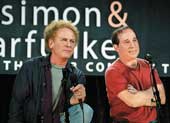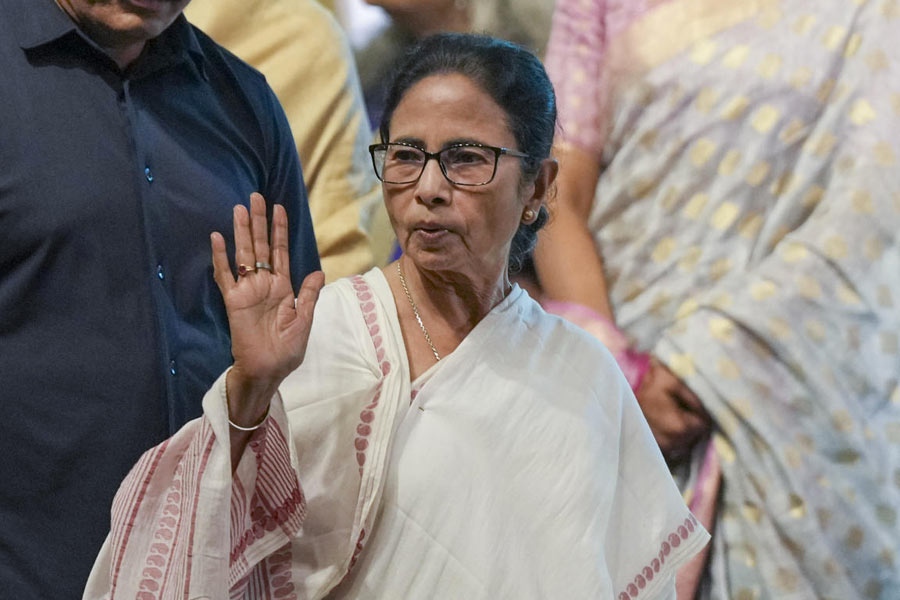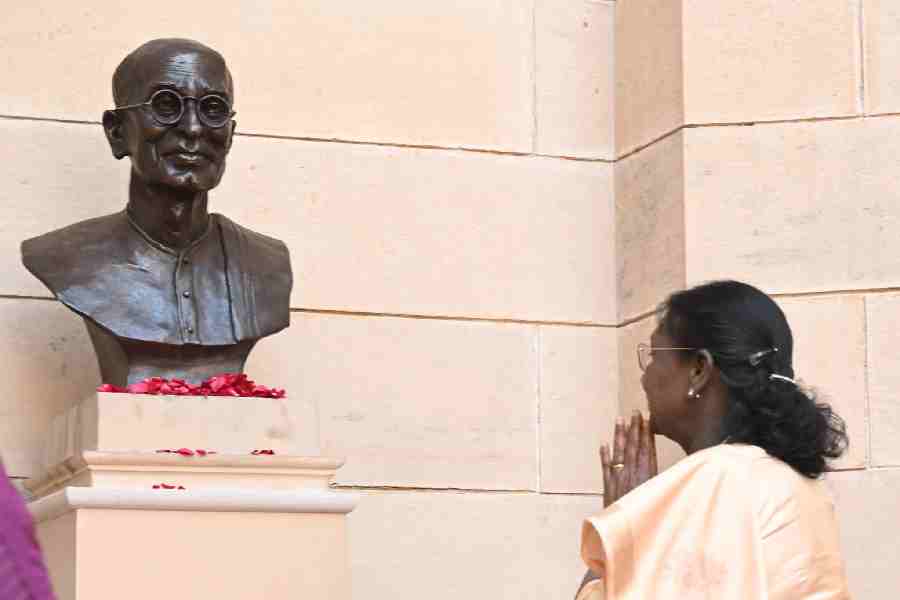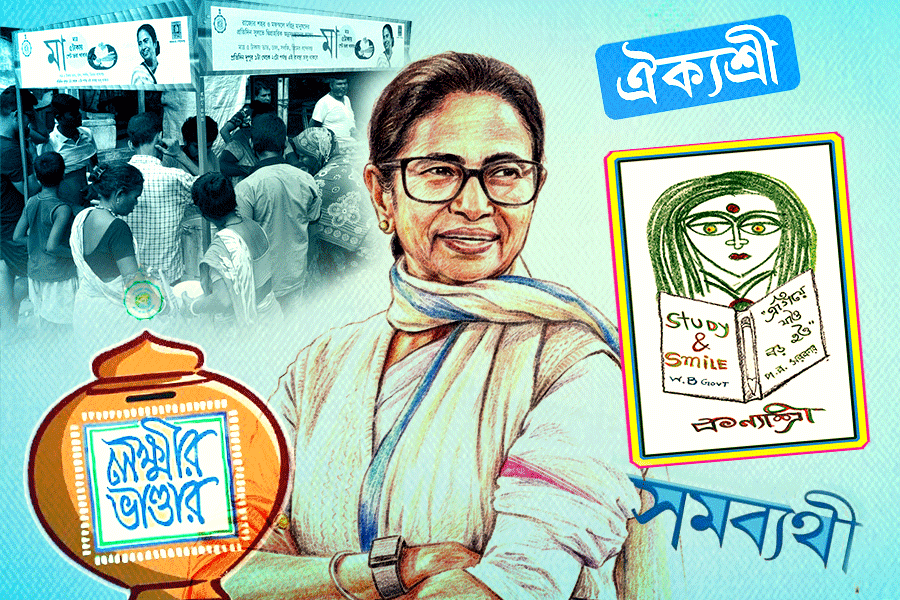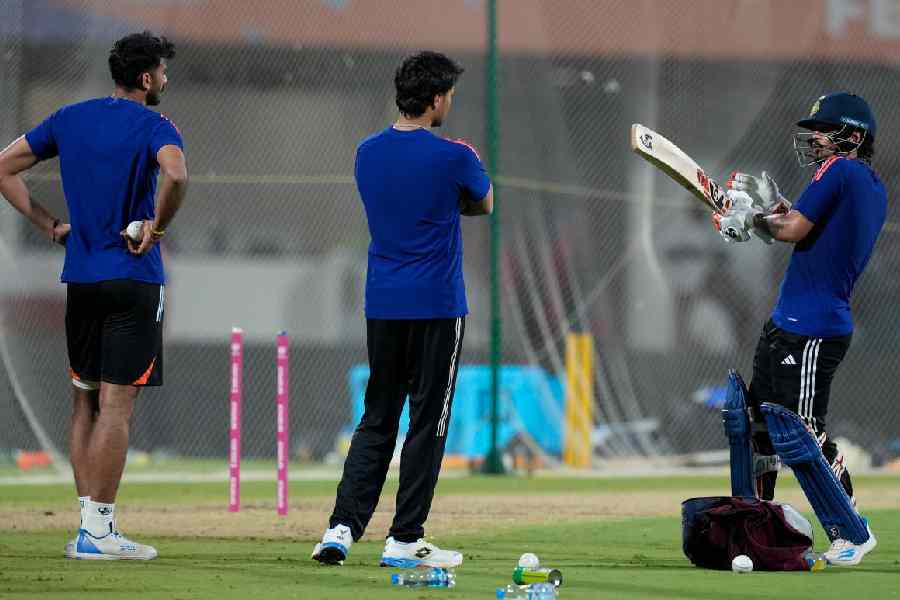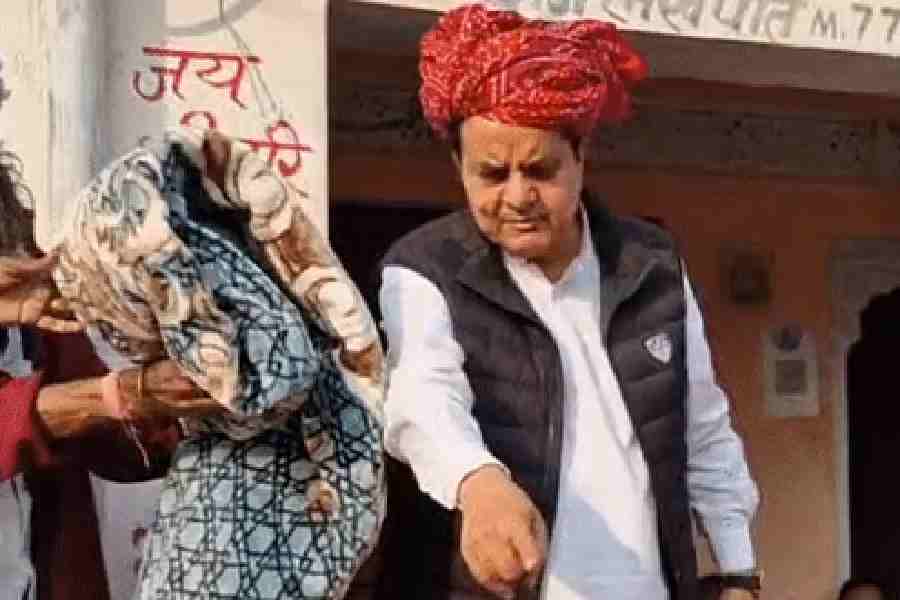 |
| Simon Taufel |
Rajkot: Simon Taufel is just 36, but has already officiated in 41 Tests and 103 ODIs. Besides, the International Cricket Council (ICC) has adjudged him the numero uno umpire for the last three years. The Sydney-based Taufel, who has picked up more than the odd word in Hindi, spoke to The Telegraph for over half-an-hour on Saturday.
The following are excerpts
On what made him take to umpiring
I used to be a right-arm fast bowler and had played the U-19s for New South Wales... However, a back injury made me give up cricket when I was only 20... Umpiring was one way of staying in close touch with the sport and, besides, gave pocket money during my university years. I began umpiring on Saturdays and Sundays.
On whether he admired any one cricketer
No... Of course, I grew up at a time when Greg Chappell, Dennis Lillee and Rodney Marsh were big names in Australian cricket... It’s easy to have an idol, but I just wanted to be the best bowler or the best cricketer I could be... (After a pause) One of the things I’ve seen as an umpire is the guidance present-day cricketers have on fitness, diet and so on... My generation didn’t have that, but umpiring all over has taught me the basic life skills, as I call them... Today, I’m more fitter mentally and physically...
On whether he idolised any umpire
Again, no... But I was lucky in that Sydney had quite a few former great Test and first-class umpires and they were kind enough to pass on knowledge... They helped me along the school of hard knocks, because umpiring is about all that... I set out being the best umpire I could be... Didn’t have any ambition beyond that... I began at the districts level and moved to officiating grade cricket after joining the New South Wales Umpires Association. I got my maiden first-class match within four years — New South Wales versus South Australia at the SCG. That was a big moment for me, it was thrilling.
On what goes into the making of good umpires
Quite a few qualities: People-management skills, not losing one’s cool under pressure, the ability to stay focused, good communication skills... Preparing well... Also, having the desire to improve and possessing humility. Umpires must realise cricket is a players’ game and not try to take centrestage... Personally, I try and keep my name off the news pages, away from the headlines... The focus has to be on the players, not umpires... Umpiring for me is team work... We either succeed as a team or fail as a team... By ‘we’ I mean the on-field colleague, third (TV) and fourth umpires and the Match Referee. I’m on the Elite Panel, but when I walk out with a non-Panel Indian umpire, both of us are equals.
On a growing view that umpires need not always go by the law but be practical
(Grins) At times, we do need to have a very common sense approach... Sometimes, the letter of the law isn’t as important as intent and interpretation... My way is to have a quiet word with the player if he’s crossing the line... Basically, I try and manage the game in an unobstrusive way, but in a way where the communication is prompt and proper. I’m a non-confrontational umpire.
On handling pressure
Pressure is a funny thing, it’s there if you let it be there... Pressure is of two kinds — internal and external... Internal when you put pressure on yourself to have a good game, when you raise your own expectations... External pressure may come from the crowd, excessive appealing, the noise... Lots of Media... I try to ignore the external pressures and try not to put too much pressure on myself. Bottomline is that when I walk off the field, I must be able to look in the mirror and say I umpired in the best manner I could.
On whether he gets affected after knowing he made a mistake
I’m disappointed... I feel hurt... That’s because the intention wasn’t to make a mistake... As a professional, my approach has to be to look to the next day or match, for I can’t do anything about the mistake... I accept that one of the hardest things is to look forward without thinking about what has gone past... If a mistake has been made, I focus on positive thoughts and tell myself I’m the best... The most important ball, clearly, is the next one. I can’t deal with a mistake on the field of play, it has to be when I’ve returned to my hotel room. I learn and move on.
On a move by the ICC to make an amendment, thereby allowing the Match Referee to have the final say in “terminating” a match
I certainly appreciate the administrators’ point of view, the thing about revenue, but only one match (at The Oval last August) has been called off in 130 years of Test cricket... I’m sure that every time something unusual happens, you don’t have to rewrite things... It’s best to keep things as simple as possible and umpires should respect their role and not take decisions lightly... Nowadays, when we officiate, there are a lot of political and cultural issues involved... For example, an India-Pakistan match isn’t only a game of cricket... There are sensitivities involved. Indeed, umpiring is almost becoming a diplomatic type of job.
On whether Indo-Pak matches have been the most challenging
(Laughs) All are! But, yes, they are particularly challenging because of the security considerations, attention from the Media...
On the match which gave him plenty of satisfaction
For a number of reasons, the India-England Test at the Wankhede last March... Conditions were oppressive and I hadn’t been well... Then, England had been looking to square the series... Crowds came in strength and the Barmy Army was there... At the end of it, I said to myself it was the hardest Test I’d stood in... To have come away with a clean chit on decision making was the best thing to have happened.
On more technology to help umpires
At heart, I’m a traditionalist... However, technology has a role to play and has helped in line decisions, run outs... My take is that there’s a case for more technology when it’s going to be one hundred per cent correct one hundred per cent of the time... There’s no point replacing human error with errors by technology... I’m certainly for moving away from the two-way radio technology and going in for digital earpieces.
On having been the ICC’s No.1 for three years in succession
I’ve been honoured, but it’s all about team work... Giving the award to one umpire is probably a narrow approach, though.
On tips to rookie umpires
Remember that a match actually starts well before the first ball is sent down... The preparation has to be good and never get too far ahead of yourself... Take it match by match and look to be at your best in every game... Act as a member of a team and, very important, stay humble. Have the desire to improve as well... When you walk away at the end of it all, you must be able to say you learnt a lot and grew as a person. Had fun along the way, too... People won’t necessarily remember you for your decisions, but will remember you as a person. So, make youself a good person and, then, become a good umpire.
On whether reading books helps him unwind
I also read to learn... For example, the book I’m currently reading (Good to Great by Jim Collins) is about good businesses which become great... It’s about what separates the great from the good... The onus is on me to become a better umpire each year... It involves self-assessment, goal-setting... I look at my strengths and weaknesses... I mean, I would like to be better this year than what I was in 2006... Besides books, I read a lot of research material from the Australian Institute of Sports... I try and learn from sportspersons who’ve done so well... Try and find out what made them so good... Life, for me, isn’t just about learning from my mistakes but learning from the mistakes of sportspersons who’ve achieved big.
On whether he has been bowled over by a non-cricketer
Roger Federer. He’s an amazing athlete and in a class of his own... He has remained humble and has never given the impression that he’s bigger than the sport. Federer has such admirable qualities.
Finally, on what drives him
Improving umpiring... I’m passionate how we, as a group, can move forward... I’m conscious about (the Elite Panel) umpires showing leadership and serving as role models for the next generation. If the system improves, they’re the ones who’re going to benefit the most. I’m not in the job purely for myself; I’m not in it for the remuneration alone.

